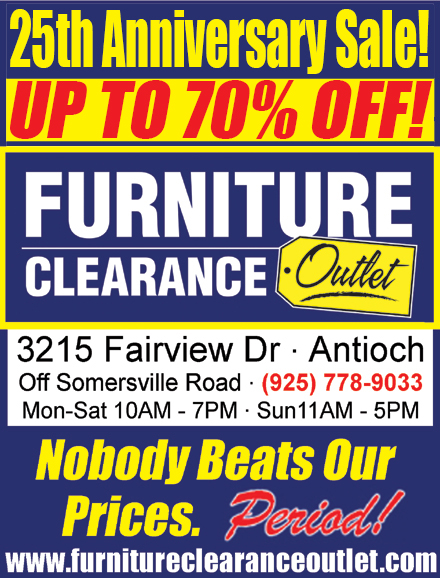Antioch Council, city commission to consider possible non-medical marijuana businesses
Only Ogorchock flatly opposed
By Allen Payton
During their meeting on Tuesday, May 9, a majority of Antioch Council members said they want to hear from the public on non-medical marijuana businesses that could be approved in the city, under Prop. 64 approved by the state’s voters, last November. They will use a newly formed ad hoc committee of the council and the city’s Economic Development Commission to gather that input.
Only Councilwoman Lori Ogorchock was flatly opposed to approving any type of the businesses due to the negative impacts on crime and reputation they could have on the city, and stating marijuana use is still illegal under federal law.
During a presentation by then-City Attorney Michael Vigilia, who left his position on May 15, shared the various types of commercial marijuana uses that the city could approve, in the categories of retail and industrial. Both could generate additional revenue for the city, he pointed out.
Prop 64 passed by voters in November, created a regulatory framework for commercial marijuana activities, Vigilia explained. The state will start issuing licenses in January 2018.
Licenses will be issued for the following categories of businesses: Cultivation, Manufacturing, Testing laboratories, Distribution, Retail sale, and Microbusinesses. A microbusiness is a vertically integrated business which cultivates on no more than 10,000 square feet and acts as a retailer.
“Prop. 64 allows cities to prohibit all marijuana activity that the state can issue a license for,” he said. “If the council wants to prohibit them, then the state can’t issue licenses to businesses for commercial activities, here.
“Industrial uses may have environmental impacts to those uses. Staff will have to look at those impacts,” Vigilia continued. “If additional uses should be approved by council, it would create an additional administrative burden.”
Revenues such businesses could generate for the city include “licensing fees, use taxes, and industrial users could be high volume water users, and the city would supply water to them.”
“One option is to allow only the industrial uses,” Vigilia shared. “These will be less visible to the community at large. You probably couldn’t tell the difference from a marijuana distributor and any other distributor. The council could approve only indoor cultivation.”
“Retail uses would be easily identifiable,” he stated. “That could attract some of the secondary, negative impacts of concern.”
Vigilia spoke of the Revenue Maximizing Option by approving both.
“The council could limit the uses to only industrial parts of town,” he said. “That would help police and code enforcement to be able to focus on only those parts of town. Certain industries that tend to attract negative secondary effects, those would be willing to locate in industrial areas.”
Vigilia also spoke of the negative impacts to crime and city staff time of such businesses, and that under Prop. 64, the council can decide which types of the businesses they want to approve or none at all. The council can also vote to prohibit deliveries of marijuana products within and into the city.
The council could require a discretionary use permit that would go before Planning Commission for approval.
“The city can prevent deliveries originating in or being made in the city,” Vigilia noted. “A city’s police power should support such a prohibition.”
Prop. 64 was approved by voters in Antioch by 60% with 21,849 voting yes, and 14,517 Antioch voters opposing. However, there was a dispute over what the voters intended.
Mayor Pro Tem Lamar Thorpe said, “I did not vote for this.” But, he said he thinks it should be good to discuss.
“More than two-thirds of Antioch voters did vote for this,” he stated.
He then referred to the support by Councilman Tony Tiscareno for the potential revenue-generating businesses.
In response, Tiscareno offered an explanation.
“What I was supporting at the time was medical marijuana dispensaries, and the kind of revenue it could be brought in,” he stated. “This was several years ago. I did state that if it did pass, I would be open to listening to some of the proponents of the law. I’m not opposed to manufacturing. I am concerned that it could change the paradigm of what we’re trying to accomplish here in Antioch. But we don’t have a Chevron, like Richmond does that could bring in more police services. This is a potential possibility. I’m very nervous about retail. If there’s a way of manufacturing, testing, we have the resources…that might be a very good revenue source.”
Mayor Sean Wright asked if it was a matter “our Economic Development Commissioners (EDC) to explore. Or is it something the council needs to handle?”
Vigilia responded, “the EDC could explore it within their area of information” to determine “where is the community broad appeal or lack thereof.”
Ogorchock at first said, “I’m willing to listen to all the opportunities,” but then stated, “I don’t want to see this as a revenue source for the city of Antioch,” to which the audience applauded.
“We’re not at 100 officers,” she continued. “It would be a huge strain on our city. Do you want to move to an area that’s cultivating marijuana? I don’t,” to more applause.
“It’s federally illegal,” Ogorchock added.
She then spoke of the Methadone Clinic in Antioch. “It has destroyed Dr. Zimmerman’s retail business,” and mentioned the negative impact on “private property,” and that “homeowners can’t sell fast enough.”
We have a beautiful city and we are on the rise. If we do something like this, it is going to set us back before the recession,” Ogorchock concluded.
Vigilia confirmed that marijuana “is still a federally banned controlled substance. The prior (Obama) Adminisration did not make it a priority to enforce federal drug laws in states where it is legalized. We don’t know what the current Administration is going to do.”
Councilwoman Monica Wilson said, “we have the whole spectrum, here. I do like the fact that we can kick it to the Economic Development Commission. Yes, it did pass here in the city. I don’t think a lot of people realized what a ‘yes’ vote meant for our city.”
“We need to figure out where we fit in the larger piece of the puzzle,” she continued. “But, we need to hear from everybody.”
Ogorchock then added, “I don’t know what our sister cities are going to do. To get to Antioch you have to go through Pittsburg. Remember at one point they wanted to build a casino out by where the BART is and that got voted down overwhelmingly. I think it’s even worse than a casino.”
“That’s why I emphasized the potential advisory vote,” Thorpe responded. “I think they knew exactly what they voted for. It’s my job to implement the policies that the voters asked us to do. They could have passed it but say we don’t want it, here. We need to give folks a chance to express what they want to express.”
“In the City of Pittsburg, the voters did pass a 10% tax on marijuana,” he added.
Tiscareno jumped back into the discussion, saying “I’m more than happy to hear from the public on this. I’m glad when we did what we did. We can control it as a city. We have the upper hand in that. If we have support from the public and we have some revenue sources available, then we need to hear that. To make a rash judgment now, I don’t know if you’re asking for that, now. But I am willing to listen. Listen to both sides before making a decision. Do we just turn a blind eye and miss an opportunity or do we listen to the public?”
“By pushing it off…we have the ability to push it down the road a little longer,” he contined. “I don’t think it’s negative to have an ad hoc committee look into it or the Economic Development Committee. An ad hoc committee here working with the Economic Devevelopment Committee or just the Economic Development Committee.”
Public Comments
The council then heard from the public.
Jelani Killings, a Pittsburg City Councilman was first to speak.
“I’m your neighbor. But this is where I worship. Where my home church is,” he stated. “Consider as staff made the presentation there were a lot more negative than positive. It’s all about revenue. Substance is a big issue, not only in the county, but in our respective cities, as well. There is going to be an adverse impact for services for substance abuse, driving under the influence.”
“Fast money is what all of our kids are looking at,” Councilman Killings continued. “Now here we are as a government looking for the easy path. I appreciate your comments, Councilwoman Ogorchock.”
“There is a strict prohibition against medical and non-medical marijuana uses,” he stated. “People have the right to grow up to six plants on their own private property. I believe that’s what people voted for. Go with the full prohibition on marijuana activities in Antioch.”
His uncle, Henry Killings spoke next, saying he is “a pastor in this community and also a resident, for the past six years. I really have a heart for this community.”
“I see no benefit in the legalization of it because of what it does for an individual,” Pastor Killings stated. “It never accomplishes a positive goal. All it is, is the altering a state of mind for an individual for a period of time. Why would we want to open a door to more darkness in this community, when we have the problems with crime.”
“You want to have the city open to good businesses, not businesses that are going to harm our students,” he continued. “The Word of God says ‘the love of money is the root of all kinds of evil.’ We don’t want to destroy Antioch. We want to build Antioch.”
“The next time we’re going to have a meeting to discuss this…I will go to the churches…and the highways and the byways to bring people in who are victims of this,” the pastor stated. “We have the opportunity to turn this around, right now. If we maintain integrity and morality, we will see glory come to this city, once again.”
William Posada said, “I’m also a member of the church, Threshing Floor Tabernacle. I’m also a resident of Brentwood. I see it firsthand the young adults who are causing problems. I used to own a home in Antioch. Because of the youth looking to find things to sell, I had my home broken into.”
“I own a business,” he continued. “If we have a generation caught up in marijuana, or any kind of substance…there’s been a 44% increase in accidents in Colorado because of marijuana.”
“I encourage you to think it thoroughly and the consequences of the young people getting a hold off this drug and using it on a daily basis,” Posada implored. “I know you said people voted for this. But, we live in a time people don’t think things through.”
Thorpe then asked, “We already have a ban in the city of Antioch, when does that come up again?”
Vigilia responded, “November of this year is when we will be considering” a renewal of the ban. “The City Attorney will bring [it] back…you will get it sometime in the fall.”
Thorpe then said, “EDC sounds perfect for me.
“Very good. You have the direction,” Wright said looking at the City Manager and City Attorney. “Do you need anything else from us?” he asked.
Vigilia – “No.”
With that the matter was concluded.
Other Council Business
Also during the meeting, Thorpe requested the formation of an ad hoc committee to discuss what he labeled Quality of Life ballot measures for 2018.
“There’s a gubernatorial race coming up in 2018,” he said. “So, I think this is a great opportunity to discuss…a tax, lighting and landscaping, a renewal of Measure C.”
“It would be an ad hoc committee to make recommendations to the city council for approval…limited to only things that we can put on the ballot,” he added.
On a 5-0 vote, the council appointed Thorpe and Wilson as members of the committee.
Then, at the end of the meeting, Thorpe asked that the council take up the issue of water rates, “now that the drought is over, and the tiered water rates we have, today.”


























I remember what downtown Oakland was like before the dispensaries went in. It was scary, no one would spend time there. Lots of crime just like Antioch. Then Oaksterdam sprung up and the dispensaries hired security guards and other restaurants started opening up near by and then cool artists setup shops. The next thing you knew there was vibrant growth, clean streets and a ton of money from other cities being spent in their downtown. If Antioch restricted the sale of cannabis to just downtown, they could actually revitalize the area because it would give people a reason to go there instead of one of the box stores next to the freeway. The crime that occurs when these sorts of transactions happen in the open is minimal compared to the crime that is occurring now. Lets end the grow houses and street deals and tax the economic activity that is already happening, whether the city grants pot permits or not.
Council so desperate to keep the city afloat. LMAO. How do we do it? Lets invest in quasi illegal business and put all our eggs in that basket because we have no other choice.
Typical Antioch.
Have to get the money to cover Measure C money that is going to go away and the council knows it. I am opposed.
What more does a crime infested city need? More drugs.
Thank you, Lori Ogorchock!!
Except for Lori this is the dumbest city council we have ever had. I thought Mr. Harper had a lock on dumb but these 4 just keep carrying on stupidity.
This town is going to pot. No pun intended!
Sherra,
Clever comment. But, actually it’s not. The council majority appears to be against allowing these businesses in our city. They can even block deliveries of marijuana into our city to any resident or business. So, keep up the pressure if you don’t want that in Antioch.
Allen Payton, Publisher